THE MONUMENTAL NATION
AUSTRIAN AND HABSBURG STUDIES
General Editor: Howard Louthan, Center for Austrian Studies, University of Minnesota
Before 1918, Austria and the Habsburg lands constituted an expansive multinational and multiethnic empire, the second largest state in Europe and a key site for cultural and intellectual developments across the continent. At the turn of the twentieth century, the region gave birth to modern psychology, philosophy, economics, and music, and since then has played an important mediating role between Western and Eastern Europe, today participating as a critical member of the European Union. The volumes in this series address specific themes and questions around the history, culture, politics, social, and economic experience of Austria, the Habsburg Empire, and its successor states in Central and Eastern Europe.
For a full volume listing, please see back matter
THE MONUMENTAL NATION

Magyar Nationalism and Symbolic Politics
in Fin-de-sicle Hungary
Blint Varga

First published 2016 by
Berghahn Books
www.berghahnbooks.com
2016, 2020 Blint Varga
All rights reserved. Except for the quotation of short passages for the purposes of criticism and review, no part of this book may be reproduced in any form or by any means, electronic or mechanical, including photocopying, recording, or any information storage and retrieval system now known or to be invented, without written permission of the publisher.
Library of Congress Cataloging-in-Publication Data
A C.I.P. cataloging record is available from the Library of Congress
British Library Cataloguing in Publication Data
A catalogue record for this book is available from the British Library
ISBN 978-1-78533-313-2 hardback
ISBN 978-1-78920-519-0 paperback
ISBN 978-1-78533-314-9 ebook
CONTENTS

ILLUSTRATIONS AND TABLES

Illustrations
Tables
ACKNOWLEDGMENTS

T his book could not have been written without the help of numerous people and institutions. The initial idea to write this study came from Gbor Sonkoly, who has accompanied me on the long intellectual journey I have traveled in the past few years. Discussions with Balzs Trencsnyi in Budapest, Elena Mannov in Bratislava, and Hans-Christian Maner in Mainz were always fruitful in shaping my ideas. Beyond them, I could always rely on the advice of Nndor Brdi, Cristian Cercel, Gbor Czoch, Peter Haslinger, Gabriela Kilinov, Csaba Gy. Kiss, Szonja Komorczy, Jan Kusber, Gernot Nussbcher, Thomas indilariu, and Csaba Zahorn. Stevo urakovi, Danilo Sarenac, and Gyrgy B. Lukcs generously helped me to organize research in Zagreb and Belgrade, and with the translations from Serbian and Croatian. Lszl Sebk generously provided help with cartography. Besides these, many others shared their ideas with me and did me favors; to all of them I am likewise grateful. The final manuscript was significantly improved by the feedback of Andrs Cieger, Gbor Egry, Zoltn Fnagy and Gbor Gyni. The most critical reader of the manuscript was my wife Rka. Finally, the anonymous reviewers at Berghahn Books pointed out many shortcomings of the book; I appreciate their balanced opinion, which was of crucial importance. The virtues of this book are thus largely the outcome of my collaboration with numerous people; needless to say that all the mistakes are my own.
This research project was supported by a number of institutions, including the Lornd Etvs University of Budapest, the Johannes Gutenberg University of Mainz, the Slovak Academy of Sciences, the University of Vienna, the Pro Renovanda Cultura Hungarie Foundation, and the Southeast Europe Association. Their support proved crucial in collecting the documents this study is built on.
I dedicate this book to the memory of my grandmother. She was always most proud to see her grandson becoming a historian; I regret I was not quick enough to complete this project during her lifetime.
TERMINOLOGY

N aming places in Central Europe is a complicated issue, since all name variants carry a national significance. The most correct method would be to include all variations, but this is impossible for practical reasons. The capital of Slovakia illustrates this challenge: it should be referred to as Posonium/Pressburg/Pozsony/Prepurk/Bratislava/ , just to mention the most common Latin, German, Magyar, old Slovak, current Slovak, and Yiddish names. Even this solution omits some older Slavonic, Ruthenian, Serbian, Czech, and Croatian variants and some other vernacular forms. For the sake of simplicity, places will be referred to according to the largest group of mother tongue, as recorded in the 1890 census, the last before the millennial year. In citations, place names will appear as in the original. Appendix 2 helps to identify current names.
, just to mention the most common Latin, German, Magyar, old Slovak, current Slovak, and Yiddish names. Even this solution omits some older Slavonic, Ruthenian, Serbian, Czech, and Croatian variants and some other vernacular forms. For the sake of simplicity, places will be referred to according to the largest group of mother tongue, as recorded in the 1890 census, the last before the millennial year. In citations, place names will appear as in the original. Appendix 2 helps to identify current names.
The distinction between Magyar and Hungarian is emphasized throughout this book. Hungarian is used as a neutral term for the entire country, while the term Magyar is applied to the ethnic group and its language. The term Hungary has also various meanings; in this work Hungary refers to the lands under the direct control of the Budapest government (excluding Croatia-Slavonia, Transylvania until 1867, and the Military Frontier until its dissolution in 1881). The Greek Catholic population of northeastern Hungary is labeled as Rusyn rather than Ruthenian or Ukrainian. A difference between German and Saxon is kept, reserving Saxon for the Lutheran German-speaking population of Transylvania and using German to refer to any other German-speaking group of Hungary.
Except otherwise noted, all translations are mine.
ABBREVIATIONS

AH | Archiv der Honterusgemeinde A. B. in Kronstadt (Archives of the Honterus Lutheran Parish in Braov) |
AJ | Arhiv Jugoslavije (Archives of Yugoslavia, Belgrade) |
DAZO | Derzhavnii Arhiv Zakarpatskoi Oblasti (State Archives of the Transcarpathian County, Beregovo) |
DJBAN | Direcia Judeean Braov a Arhivelor Naionale (Braov County Filiale of the National Archives, Braov) |
FMKE | Felsmagyarorszgi Kzmveldsi Egylet (Upper Hungarian Cultural Association) |
GYL | Gyulafehrvri rseki Levltr (Archives of the Alba Iulia Diocese, Alba Iulia) |
HDA | Hrvatski dravni arhiv (Croatian State Archives, Zagreb) |
HSDP | Hungarian Social Democratic Party |
IAB | Istorijski arhiv Beograda (Historic Archives of Belgrade) |
MNL CSML | Magyar Nemzeti Levltr Csongrd Megyei Levltr Szentesi Levltra (Archives of Csongrd County, Szentes) |
Next page
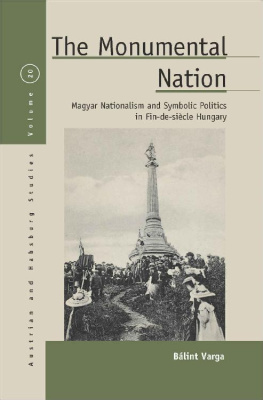

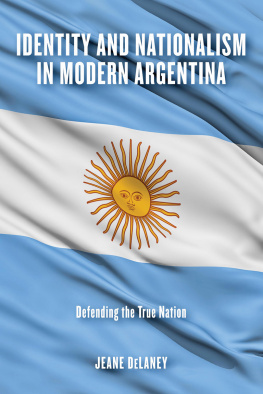
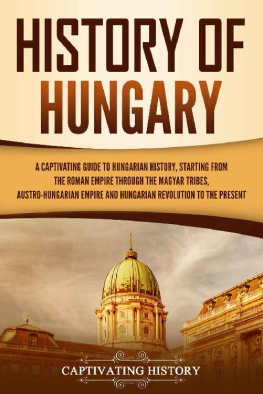
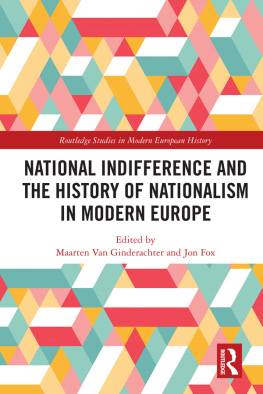
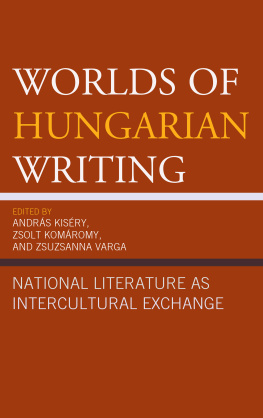
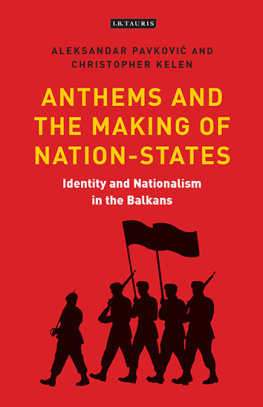
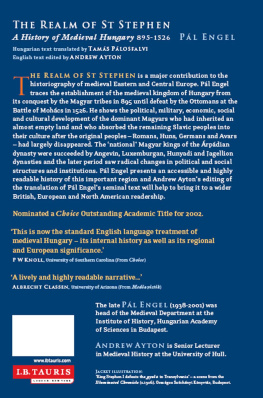

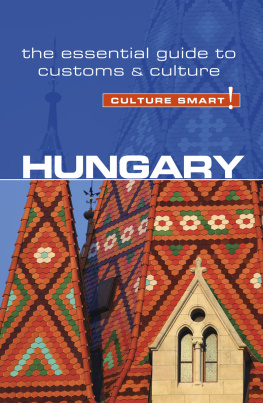
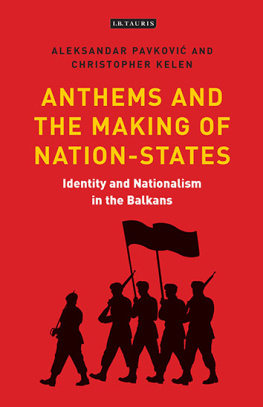
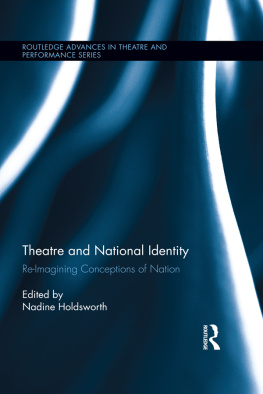
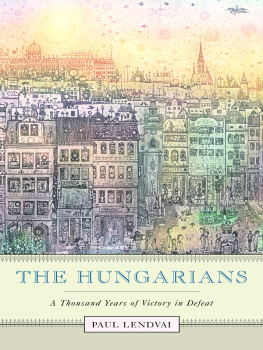


 , just to mention the most common Latin, German, Magyar, old Slovak, current Slovak, and Yiddish names. Even this solution omits some older Slavonic, Ruthenian, Serbian, Czech, and Croatian variants and some other vernacular forms. For the sake of simplicity, places will be referred to according to the largest group of mother tongue, as recorded in the 1890 census, the last before the millennial year. In citations, place names will appear as in the original. Appendix 2 helps to identify current names.
, just to mention the most common Latin, German, Magyar, old Slovak, current Slovak, and Yiddish names. Even this solution omits some older Slavonic, Ruthenian, Serbian, Czech, and Croatian variants and some other vernacular forms. For the sake of simplicity, places will be referred to according to the largest group of mother tongue, as recorded in the 1890 census, the last before the millennial year. In citations, place names will appear as in the original. Appendix 2 helps to identify current names.